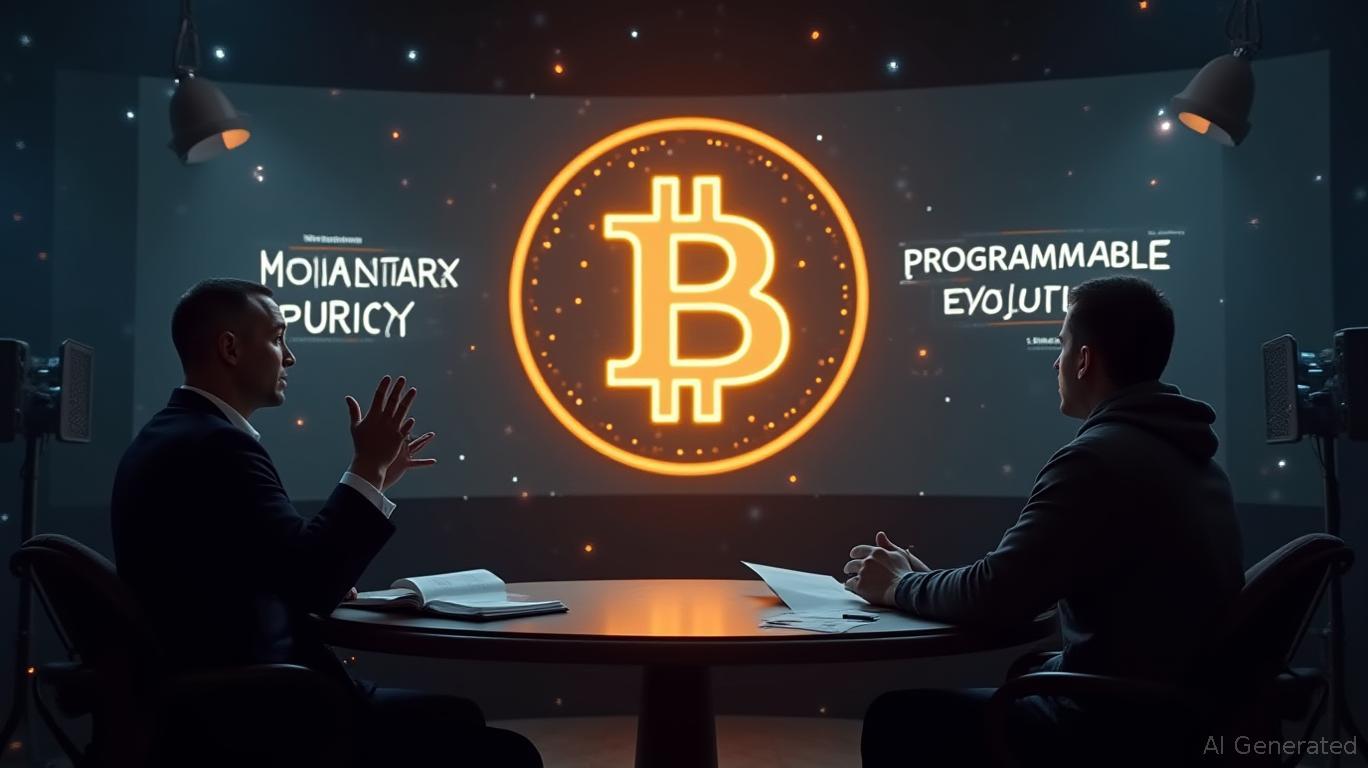Bitcoin’s Fundamental Dilemma: Preserving Monetary Integrity or Embracing Programmable Innovation
- Bitcoin Core’s removal of the 80-byte OP_RETURN limit in version 30 sparks debate over Bitcoin’s monetary purity vs. programmable use cases. - Critics like Jimmy Song argue the change risks enabling non-financial data spam and diluting Bitcoin’s decentralized, minimalist identity. - Proponents, including Peter Todd, defend it as a practical upgrade for cross-chain efficiency and reduced network strain. - The controversy mirrors past conflicts (e.g., 2017 block size wars) and highlights ideological rifts

Jimmy Song, a well-known
The OP_RETURN opcode, which allows arbitrary data to be added to Bitcoin transactions, has historically been controversial. Initially, it was meant to allow for data storage without expanding the UTXO set, but lifting the 80-byte cap has triggered fears of abuse, such as increased spam or the storage of non-monetary information. Supporters like Bitcoin Core developer Peter Todd believe that raising the limit is in line with current practices and could benefit uses like sidechains and cross-chain bridges. On the other hand, Song and his supporters see this as undermining Bitcoin’s original mission, stressing that it should remain focused on financial transactions alone.
This controversy has further split the Bitcoin community, echoing past disputes like the 2017 debate over block size. Detractors, including Botanix Labs developer Willem S, caution that allowing non-monetary functionality could undermine Bitcoin’s decentralized nature by promoting technical shortcuts over clear principles. Proponents highlight the potential for more effective Layer 2 solutions and less network congestion from workaround tactics. As a result of this divide, some users are turning to alternatives like Bitcoin Knots, which enforce stricter limits to uphold Bitcoin’s decentralized foundation.
Similar disputes have occurred in the past, such as the 2014 “OP_RETURN Wars,” when services like Veriblock caused network congestion and higher transaction fees. The emergence of Ordinals and Inscriptions—protocols that store images and text on the blockchain—has only heightened concerns about Bitcoin’s identity as a financial ledger. Song’s critique echoes broader worries that such innovations might distract from Bitcoin’s value, especially with competition from Ethereum-based projects for developer interest and new use cases.
The consequences of this change go beyond technical arguments. By altering Bitcoin Core’s default behavior, developers could impact how users interact with the network and influence governance practices. Opponents worry that prioritizing developer ease over consensus might weaken Bitcoin’s decentralized governance. Supporters, however, maintain that keeping rigid limits can hinder progress and force less efficient solutions. This ongoing debate reflects the challenge of upholding Bitcoin’s original intent while adapting to new demands for flexibility and scalability.
With the release of Core 30 set for October, the controversy brings a central issue to the forefront: Should Bitcoin remain strictly a currency, or should it evolve into a broader platform for decentralized applications? Although the immediate effects of the OP_RETURN adjustment are still unclear, the disagreement highlights a deeper ideological conflict that will shape Bitcoin’s future. For the time being, the community is still split, with both users and developers weighing the merits of innovation against the need to protect Bitcoin’s founding values.
Disclaimer: The content of this article solely reflects the author's opinion and does not represent the platform in any capacity. This article is not intended to serve as a reference for making investment decisions.
You may also like
CandyBomb x POWER: Trade to share 4,387,500 POWER
New users get a 100 USDT margin gift—Trade to earn up to 1888 USDT!
Bitget Spot Margin Announcement on Suspension of DOG/USDT, ORDER/USDT, BSV/USDT, STETH/USDT Margin Trading Services
BGB holders' Christmas and New Year carnival: Buy 1 BGB and win up to 2026 BGB!